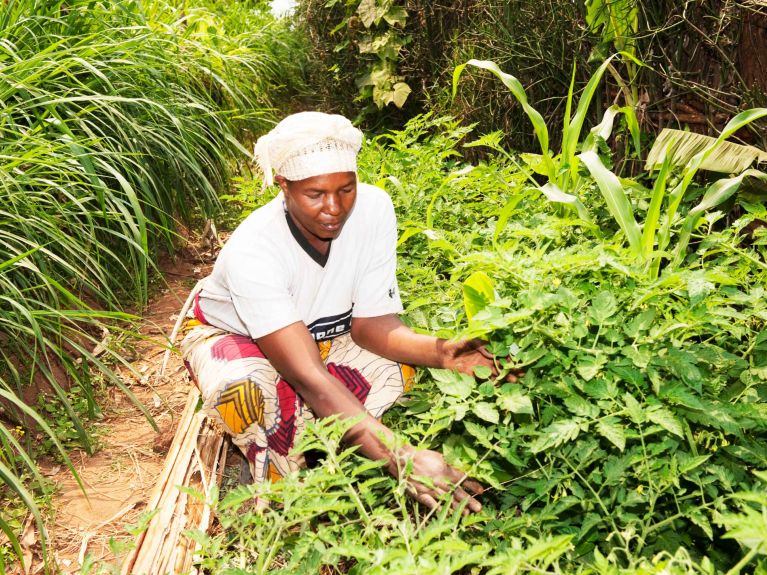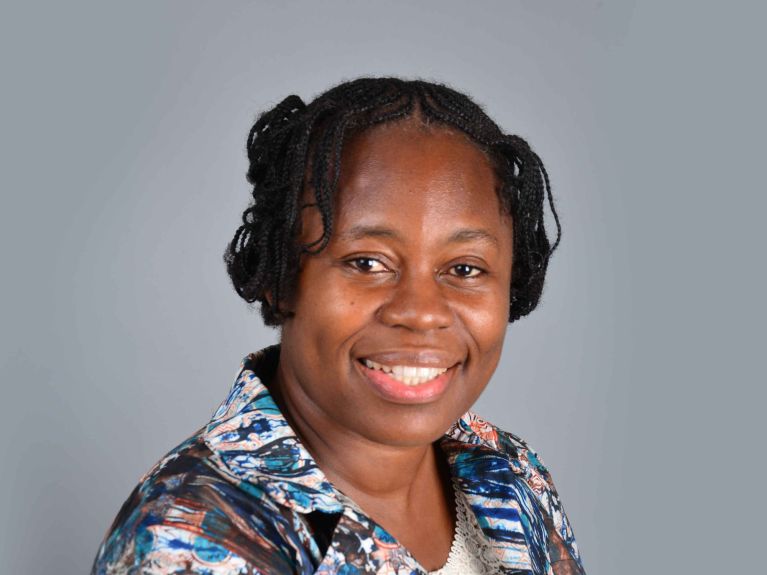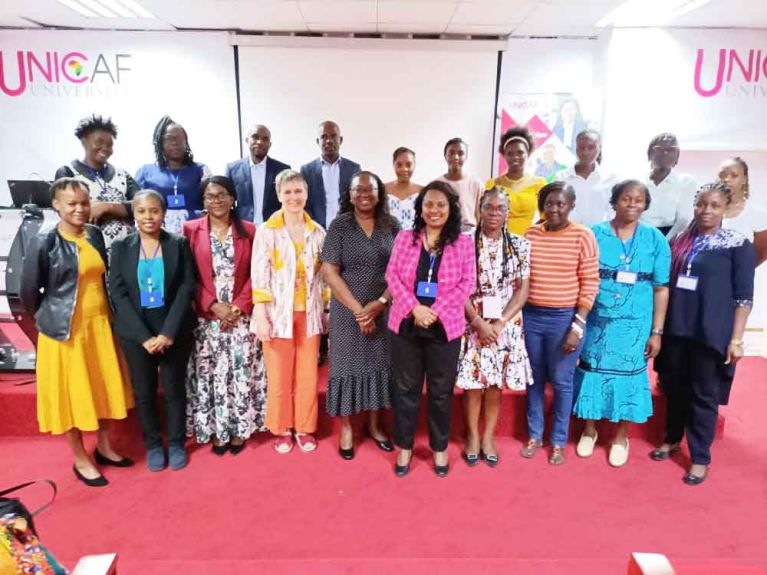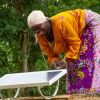Women for climate action
A group of female African researchers wants to raise the profile of women in the climate sciences and to consider the needs of women with respect to climate change.

Climate change is having a massive impact on the African continent. The female population in particular is suffering because it is for the most part women who engage in agriculture. A group of female African climate scientists is committed to improving the situation. Their goal is also to support one another in their academic careers, which often involve considerable hurdles for female researchers in African countries. The initiative, which is called the climapAfrica Women’s Group, was established with funding from the German Academic Exchange Service (DAAD). We talked to the biologist Dr Catherine Oluwakemi Esuola from Nigeria about the group’s motivation and objectives.

Dr Esuola, you are a co-founder of the climapAfrica Women’s Group, which has been active since 2021, and ran the initiative until 2022. What are its goals?
Our goal is to give women the tools they need to boost their self-confidence and support them in their academic careers. It is not easy for women in Africa to embark on a career in research. And we are still very underrepresented at the moment, especially in the climate sciences. We hope that we will be able to support each other and the next generation of African women and girls who are interested in pursuing a career in science and related subjects. Ultimately, our goal is to improve the representation of African women in climate sciences and in the academic world.
What have you achieved so far?
We have suddenly been given an opportunity to engage in an intensive discussion about our own research. In Nigeria, we are now a group of five female researchers who meet regularly online to consider where there is need for research into climate issues. And of course, I can also just get in touch with Anayawa or Faith if I have an idea for a research project in Zambia or Ghana. It’s the Women’s Group that makes this possible.

One of your goals is also to advance research into the vulnerability of the female population in Africa in the context of climate change. Have you also made progress in this respect?
That is also one of the reasons why we have organised a roundtable with women to bring scientists and farmers together. One of the most important goals for us as climate researchers is to pass our knowledge on to people who can use it on the ground to improve their situations. It will become increasingly important for African women in agriculture to have access to weather data in future, as this will help them decide for instance which crops to grow. Or what existing traditional knowledge can be applied based on such data.
Valid data is not easy to come by. And yet it plays an essential role in climate research, doesn’t it?
I would like to add that it is really difficult for us to get hold of valid data locally. Searching for it online can be extremely expensive, especially if your institute does not subscribe to certain journals, which is very often the case in other African countries too. It was therefore hugely helpful for me to spend half a year researching in Germany and, having access to professional equipment, to be able to generate my own data.
What is the focus of your research?
My research is focusing on a crop that plays an important role in Nigerian diets but tends to have rather low yields. My goal is to improve its yields. To do so, what I needed most of all at first was access to professional lab equipment. This was not available in Nigeria, however, meaning I would have had to send my samples abroad, which would have cost a lot of money. Thanks to the climapAfrica programme I was able to have the samples analysed in German laboratories.
The climapAfrica programme will be coming to an end in July 2023. Will the Women’s Group continue to exist?
Definitely! We want to keep on growing and also include female climate researchers from non-African countries in our network in future.
_____________________________
Dr Catherine Oluwakemi Esuola is a principle research officer and postdoctoral fellow at the Biotechnology Research Unit, National Horticultural Research Institute (NIHORT), Ibadan, Nigeria. Among other things, her research focuses on the use of plant growth promoting microorganisms, molecular biology, plant-microbe interactions for food security and climate change mitigation, and the use of biofertilisers and biopesticides for the biofriendly recovery of depleted soils.

